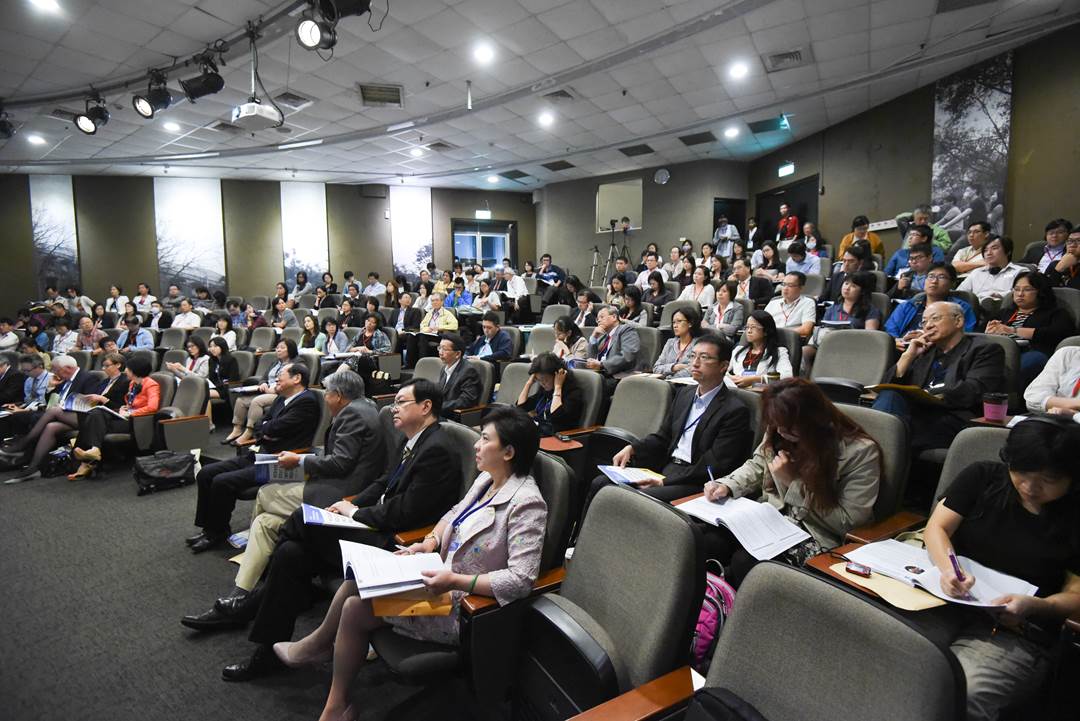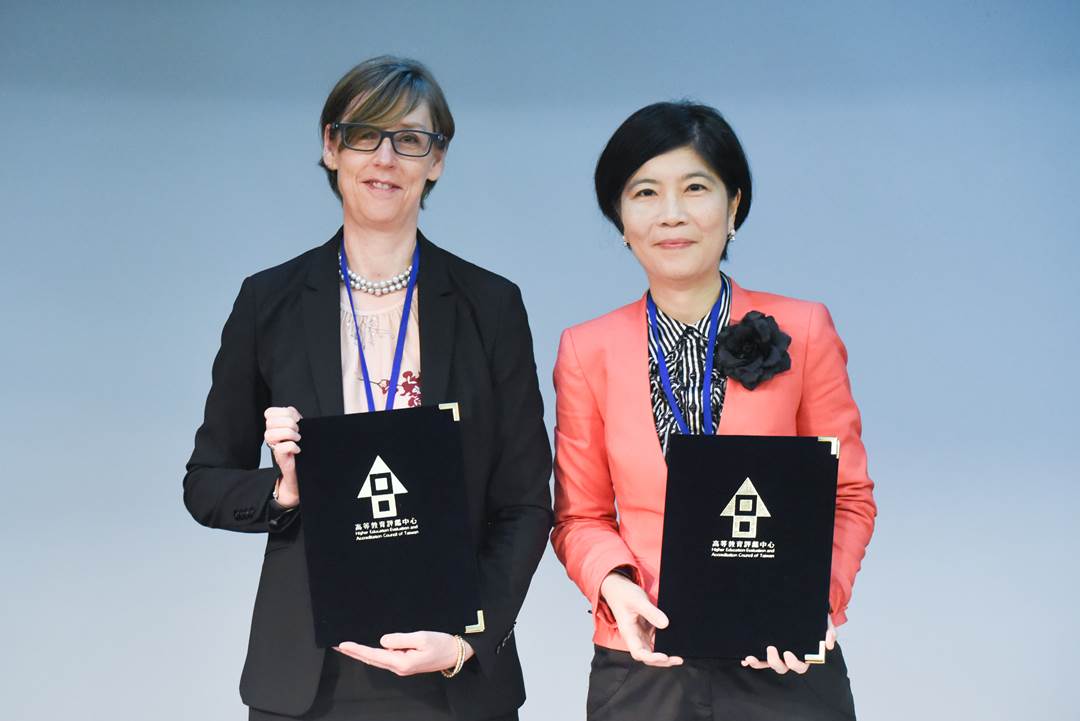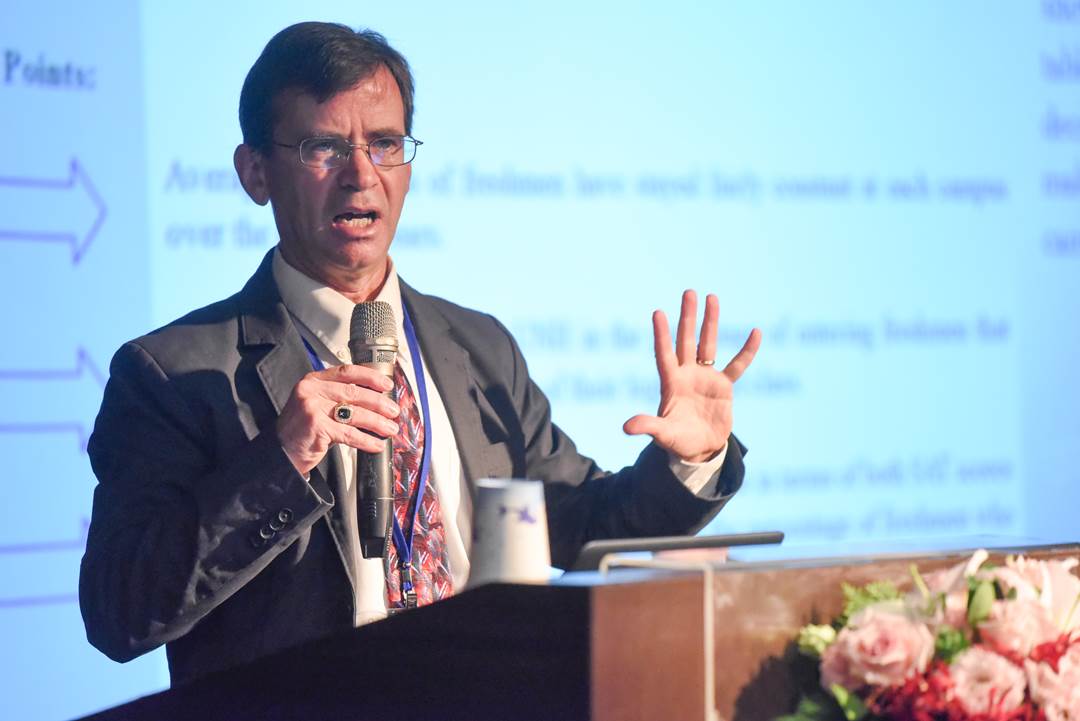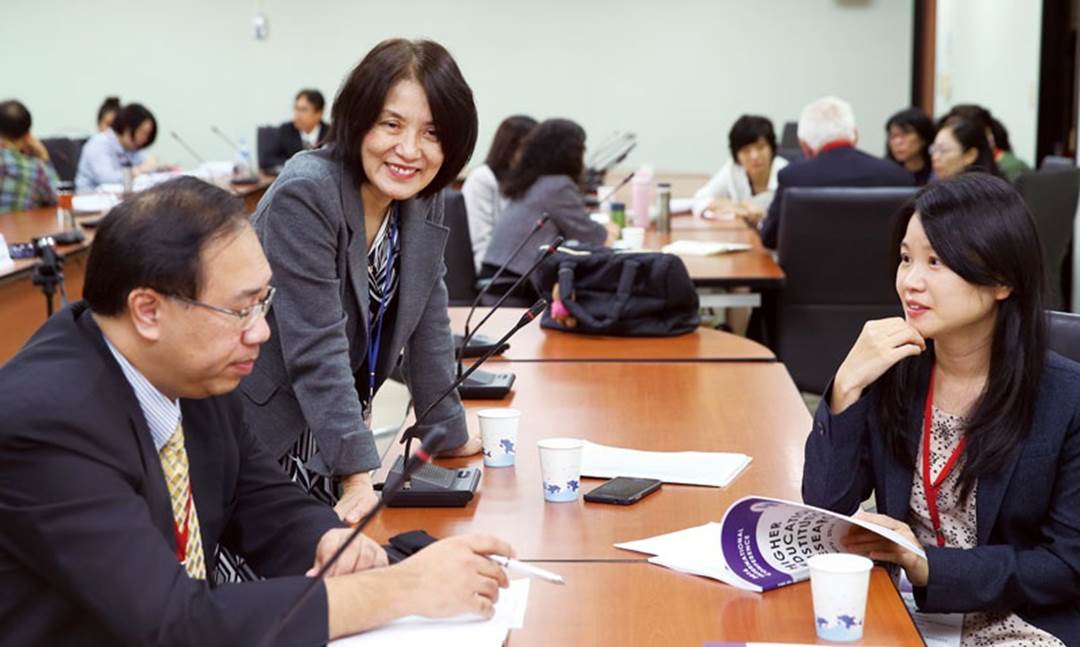2016 HEEACT International Conference
2016 International Conference in Taipei, Taiwan
Date: 18-19 November 2016
Venue: GIS Convention Center, Taipei; National Academy for Educational Research (Taipei Branch), Taiwan
Hosted by: Higher Education Evaluation and Accreditation Council of Taiwan (HEEACT) and Taiwan Association for Institutional Research (TAIR)
On 18-19 November 2016, HEEACT and TAIR held the first joint conference and workshop, 2016 International Conference: Higher Education Institutional Research and Quality Assurance, at the GIS Convention Center and the National Academy for Education Research (Taipei Branch) in Taipei, Taiwan. The purpose of this all-English event is to help integrate institutional research (IR) and quality assurance (QA) into higher education to improve governance quality and institutional management, especially in a nation where IR is in its early beginnings. In total, 202 curious faculties and scholars gathered these two days to seek for the solutions to the challenges of establishing IR and the controversial quality of student-learning outcome, and six prestigious experts from different countries and 10 leading university presidents and professors were invited to share their insights and practices on various extensive topics as attendees actively sought for answers.
Besides the speakers and the fresh ideas they offered, the highlight of the conference was the signing of Memorandum of Collaboration (MOC) between HEEACT and Hong Kong Council for Accreditation of Academic and Vocational Qualifications (HKCAAKQ). The two executive directors from both agencies, Dr. Angela Yung-Chi Hou (right) and Ms. Dorte Kristoffersen (left) signed and exchanged the MOC before each giving a speech on their past achievements and a promising collaboration in the future.
IR-Institutional Research: the Key to Quality Assurance
On the 18th, the conference was separated into four sessions. Leading, an hour long keynote session by Dr. Robert Toutkoushian (above), a professor in the Institute of Higher Education, University of Georgia, who delivered the importance of IR and its impact to achieve internal quality assurance in colleges and universities. Two topic sessions followed, led by Dr. Chester Haskell, an independent consultant, confirmed the quality assurance of linking IR to external assessment, and Dr. Akiyoshi Yonezawa, a professor/director in the Office of Institutional Studies, Tohoku University, challenged the possibility of collaboration in East Asian Universities, hence the universality of cross-border effort. In the afternoon, Ms. Dorte Kristoffersen, the executive director of HKCAAKQ and Dr. Syun Tutiya, the director of Research Department, National Institutional for Academic Degrees and Quality Enhancement of Higher Education (NIAD-QE), shared their experiences about QA and governance of higher education in local and non-local institutions. Lastly, a panel session by the presidents and vice-president of national universities concluded the conference. Dr. Hong Ho-Cheng, President of NTHU, shared his views about validating the information obtained for accuracy. Dr. Chein Tai, President of STUST discussed about the importance of IR to improve enrollment rate in Taiwan’s Higher Education in response to low birth rate. Dr. Wenlung Li, Vice President of NTUT discussed how IR impacts on the development of university for making policies, decisions and for predicting outcomes.
On the 19th, Dr. Toutkoushian, again, led the workshop discussing the implementation of IR and QA mechanism. Dr. Reiko Yamada (above), professor, Department of Education and Culture, Doshisha University, weighed in the topic with aspects from Japanese universities. Afterwards, attendees were divided into two groups for the breakout session, where Dr. Toutkoushian and Dr. Yamada encouraged the attendees to share their challenges within smaller groups, where each received diverse feedbacks from one another. For example, unsteady student enrollment and the lack of statistics linking to the IR database is an ongoing issue for many. The session was wrap-upped by a representative from each group sharing the lessons they learned and the pending issues waiting to be solved. In the afternoon, the workshop concluded with a lighter comprehension as the speakers presented in Chinese and left an open-ended note.
- Update Date:
- Hit:6287




